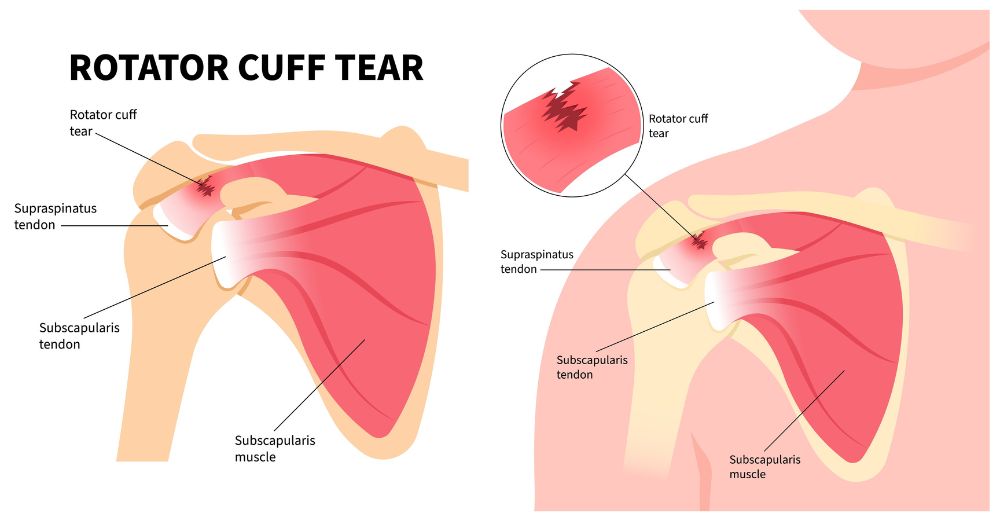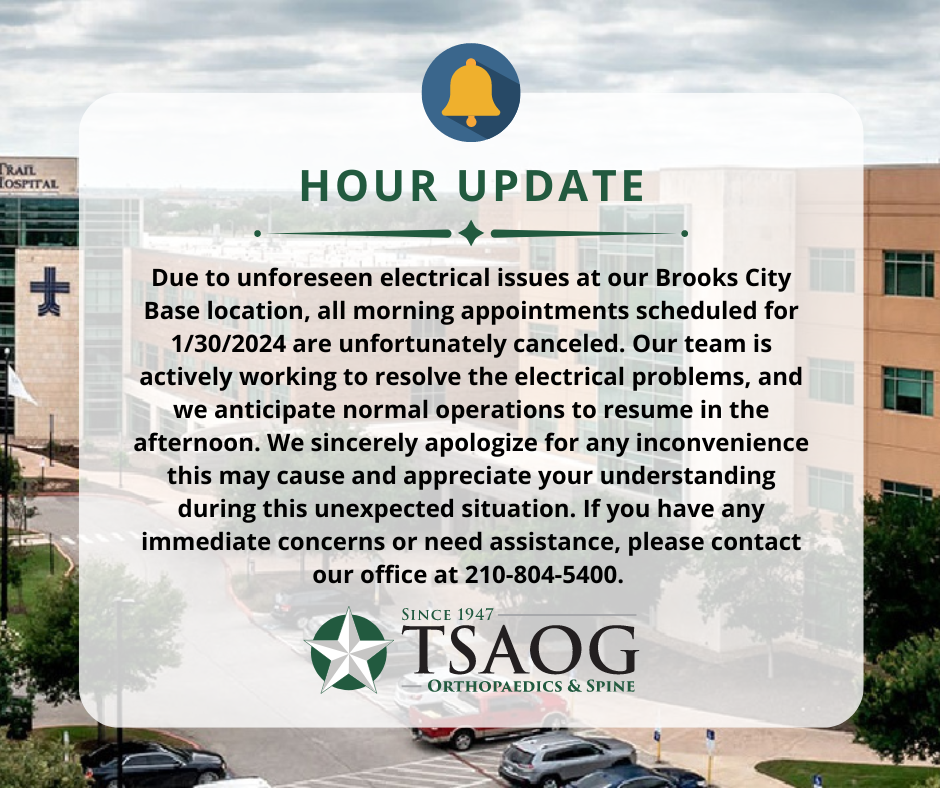The orthopedic specialists at TSAOG understand that knee arthritis can significantly impact your quality of life. As part of our comprehensive services, we offer hyaluronic acid injections – commonly known as rooster comb injections. If you’re exploring treatment options for knee arthritis, this guide will help you understand what these injections are, how they work, who can benefit from them, what to expect during treatment, and when you might experience relief.
What are hyaluronic acid (rooster comb) injections?
Rooster comb injections are a medical treatment that involves injecting a gel-like substance called hyaluronic acid into arthritic knee joints to restore function and reduce pain. The treatment gets its common name from its original source – the cartilage of rooster combs – though today, the substance can also be produced through bacterial fermentation. Medically known as viscosupplementation, this therapeutic approach works by supplementing the joint’s natural lubricating fluid, helping to improve mobility and decrease discomfort in patients with knee arthritis.
Why hyaluronic acid?
Hyaluronic acid plays a crucial role in joint health by serving two essential functions:
- It acts as a natural lubricant, allowing bones to move smoothly over each other
- It serves as a shock absorber, helping to distribute and cushion joint loads
As arthritis progresses, the amount of natural hyaluronic acid in your joints decreases. This reduction leads to increased friction and inflammation within the joint. Supplementing the joint with hyaluronic acid injections helps restore normal joint function and reduces pain.
Who can benefit from hyaluronic acid injections?
While this is not a “miracle cure,” hyaluronic acid injections are particularly beneficial for several groups of patients. Individuals with mild to moderate knee osteoarthritis often experience the best results, especially when the cartilage damage isn’t too severe. At this stage, the injections can effectively supplement the joint’s natural lubricating fluid and help maintain function.
Some patients prefer to avoid taking daily arthritis medications like NSAIDs (non-steroidal anti-inflammatory drugs) due to concerns about long-term use or simply wanting to minimize their daily medication routine. Hyaluronic acid injections offer these patients an alternative treatment option that doesn’t require daily medication.
The treatment is also valuable for patients who cannot take traditional arthritis medications due to medical conditions. People with kidney problems, stomach ulcers, or those at high risk for cardiovascular complications that may make NSAIDs unsafe may fall into this category. Similarly, patients who take blood thinners or have other medical conditions that complicate regular medication use may find these injections to be a suitable alternative.
For individuals who have tried other conservative treatments without satisfactory results, these injections offer another option before considering more invasive procedures. This includes patients who haven’t achieved adequate relief from physical therapy, oral medications, weight loss programs, or activity modifications. The injections can be particularly helpful when combined with these other conservative treatments.
Additionally, these injections can be an excellent option for patients who may need knee replacement surgery in the future but wish to delay it. This might include younger patients who want to postpone surgery until they’re older, individuals who need more time to prepare for surgery, or those whose work or life circumstances make immediate surgery impractical. The pain relief and improved function from hyaluronic acid injections can help bridge this gap and provide meaningful relief while waiting for the right time for surgery.
How are the injections administered?
The treatment consists of a series of injections administered over a period of 3-5 weeks, with patients receiving one injection per week. Each procedure is performed in a doctor’s office and typically takes about 15-20 minutes to complete. During the procedure, the doctor first cleans the injection area and may apply a local anesthetic to minimize any discomfort. In some cases, the doctor may need to remove excess fluid from the joint before administering the hyaluronic acid injection.
Are there any risks or side effects?
While hyaluronic acid injections are generally safe, patients should be aware of potential side effects:
Common side effects (usually mild and temporary):
- Pain or soreness at the injection site
- Minor swelling
- Mild warmth around the joint
- Temporary stiffness
Rare but possible complications:
- Infection at the injection site
- Allergic reactions
- Bleeding
- Increased inflammation
Patients with certain conditions, such as skin infections near the injection site or bleeding disorders, may not be suitable candidates for this treatment.
When can you experience relief after hyaluronic acid injections?
The timeline for experiencing relief varies among patients:
- Initial relief: Some patients may notice improvement within a few days after the first injection
- Full benefits: Maximum relief typically occurs after completing the full course of injections
- Duration of relief: Benefits can last anywhere from 4 months to up to a year
- Individual response: Effects vary by patient, with some experiencing longer-lasting relief than others
Most patients who respond well to the treatment report:
- Decreased pain during daily activities
- Improved joint mobility
- Better ability to perform regular tasks
- Reduced need for pain medication
It’s important to note that while this treatment is effective for many patients, it is not a permanent solution or cure for arthritis. Some patients may need to repeat the treatment series to maintain relief, typically after 6 months to a year.
Make an appointment with an orthopedic specialist at TSAOG to discuss whether hyaluronic acid injections might be an appropriate treatment option for your knee arthritis.















